
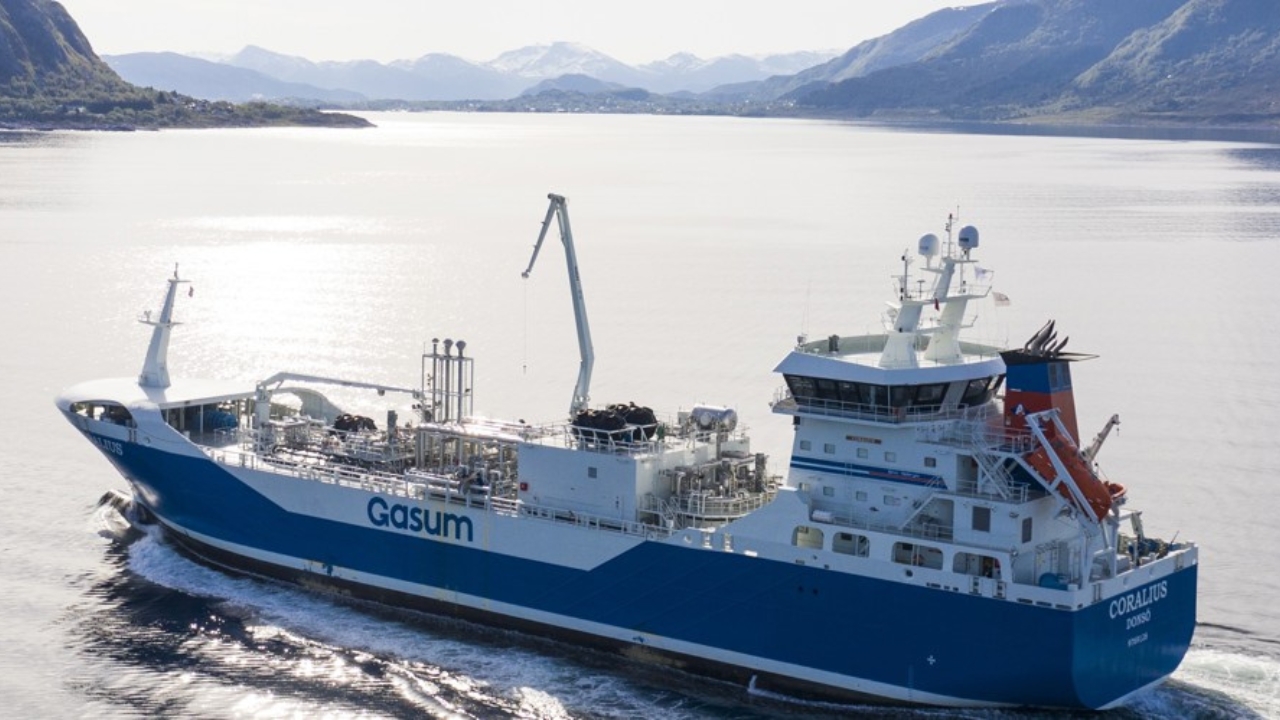 |
Nordic energy company Gasum notes that its fleet of gas-powered bunkering and carrier vessels have, for some time now, operated entirely on liquefied biogas (bio-LNG), generating compliance surplus for the company's FuelEU Maritime pool.
The company's fleet comprises two bunkering vessels that deliver LNG and bio-LNG to ships at ports, and two carrier vessels that transport liquefied gas across the Nordics and Northern Europe. Each vessel is equipped with a dual-fuel gas engine, enabling the use of renewable bio-LNG as fuel.
According to Gasum, using its own chartered vessels with bio-LNG provides flexibility to the pool's balance as the year approaches its end and more regulatory surplus is demanded.
"As we are now in the last quarter of the first FuelEU Maritime regulation year, there's never been a more critical moment for ship owners to act. Joining Gasum's FuelEU Maritime pool is the easiest and most reliable way to secure compliance. Adding our own fleet to the pool as compliance generators helps to secure more compliance surplus, but the amount is still limited," said Jacob Granqvist, Vice President, Maritime, Gasum.
Gasum's gas carrier vessels are chartered from Anthony Veder, which is also an offtaker in Gasum's FuelEU Maritime pool. One of Gasum's bunker vessels, Coralius, is jointly owned by Anthony Veder and Sirius Shipping, whilst the other bunker vessel, Kairos, is owned by Bernhard Schulte.
The pool includes other partners that are said to generate surplus with dual-fuel ships. By using bio-LNG across several gas-powered vessels, Gasum says it is able to generate surplus emission reductions that can be allocated to other ships in the pool.
The FuelEU Maritime regulation aims to reduce the greenhouse gas intensity of fuels used in shipping by gradually increasing requirements for renewable low-carbon fuels. To help the industry adapt, FuelEU Maritime allows the formation of compliance pools, which group together vessels whose collective emissions can be balanced to meet regulatory targets.
Gasum states its strategic goal is to increase the availability of bio-LNG to the North-Western European maritime market in the coming years.
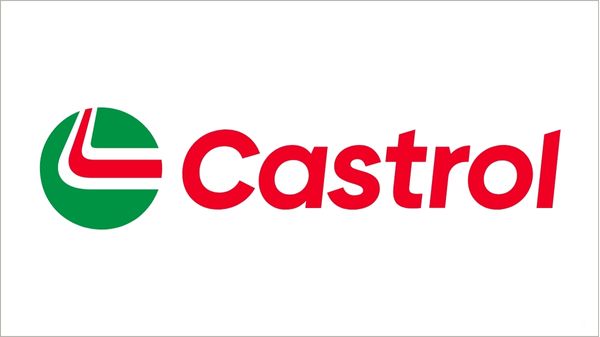
|
BP to sell 65% stake in Castrol to Stonepeak for $10bn enterprise value
Deal brings BP's divestment programme to $11bn, with proceeds earmarked for debt reduction. |
|
|
|
||

|
RINA approves design for Clippership's 24-metre autonomous wind-powered cargo vessel
Classification society to supervise construction of zero-emission ship featuring twin rigid wings for transatlantic operations. |
|
|
|
||
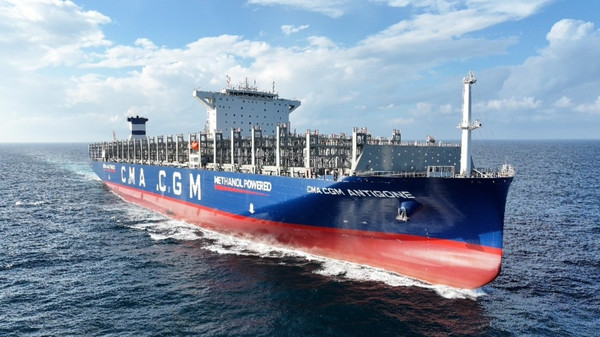
|
Bureau Veritas classes first methanol dual-fuel boxship as CMA CGM takes delivery
The 15,000-teu CMA CGM Antigone was built by CSSC Jiangnan Shipyard in China. |
|
|
|
||
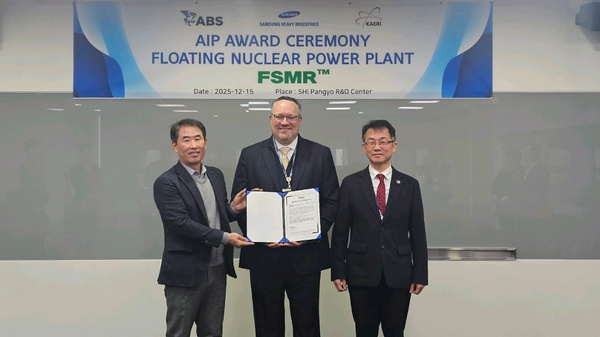
|
Samsung Heavy Industries' floating nuclear plant design wins ABS approval
Concept features twin KAERI small modular reactors and a compartmentalised layout to support offshore nuclear power generation. |
|
|
|
||
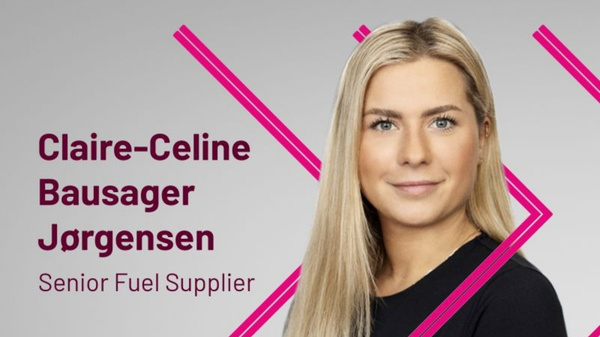
|
Dan-Bunkering Europe appoints Claire-Celine Bausager Jørgensen as senior fuel supplier
Jørgensen returns to bunker trading after several years in the company's HR department. |
|
|
|
||
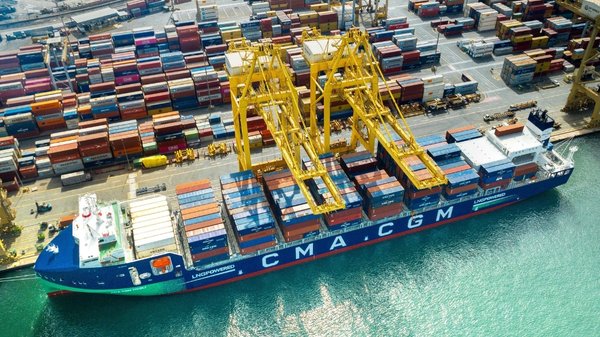
|
DHL and CMA CGM partner on 8,990-tonne biofuel purchase for ocean freight decarbonisation
Logistics and shipping firms to use UCOME biofuel, targeting 25,000-tonne CO2e reduction. |
|
|
|
||

|
Glencore to acquire majority stake in Dutch marine fuel supplier FincoEnergies
Transaction expected to complete in Q2 2026, subject to EU anti-trust approval. |
|
|
|
||
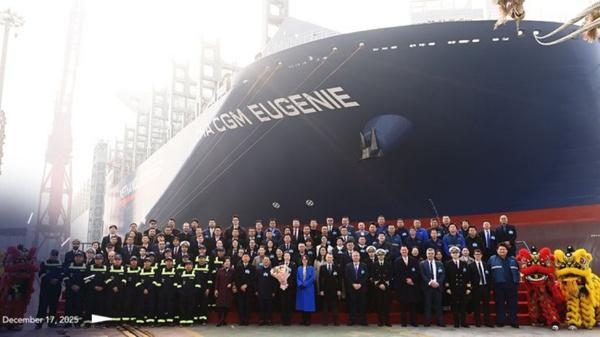
|
CMA CGM names 15,000-teu methanol-fuelled containership CMA CGM Eugenie
Vessel to operate on Phoenician Express service linking Asia, Middle East, and Mediterranean. |
|
|
|
||
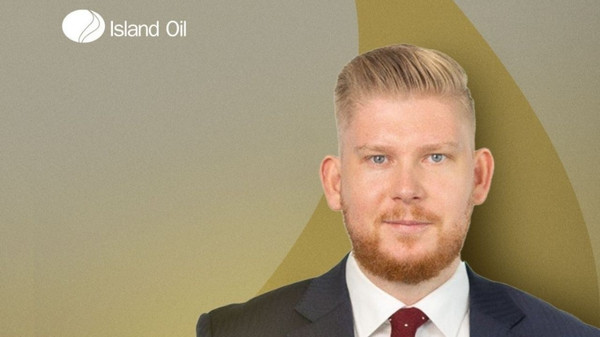
|
Island Oil appoints Christian Larsen as senior trader in Denmark expansion
Marine fuel supplier establishes operations in Denmark as part of expansion strategy. |
|
|
|
||
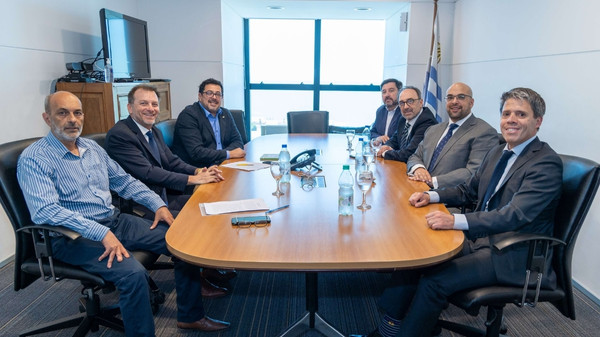
|
HIF Global signs Uruguay agreement to advance US$5.3bn e-fuels facility in Paysandú
Memorandum sets roadmap for final investment decision on plant targeting 880,000 tonnes annual production. |
|
|
|
||